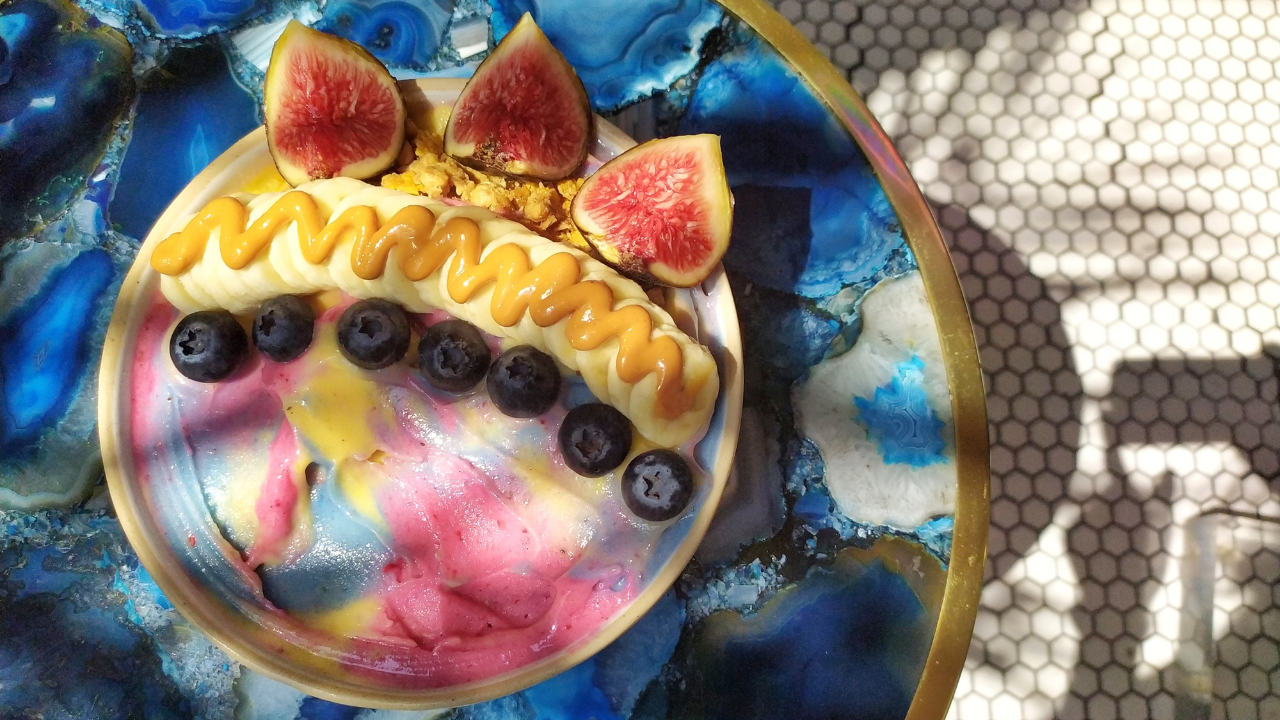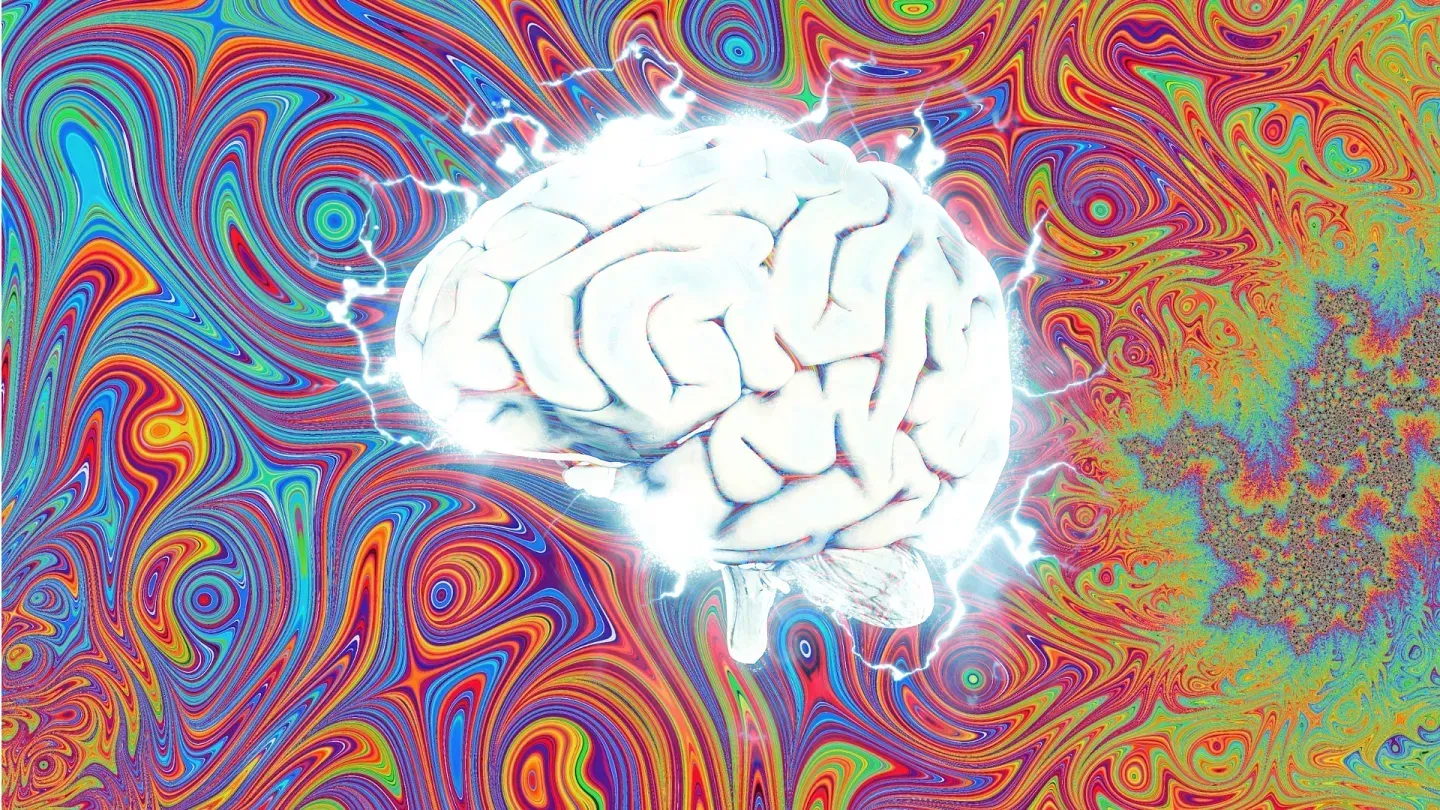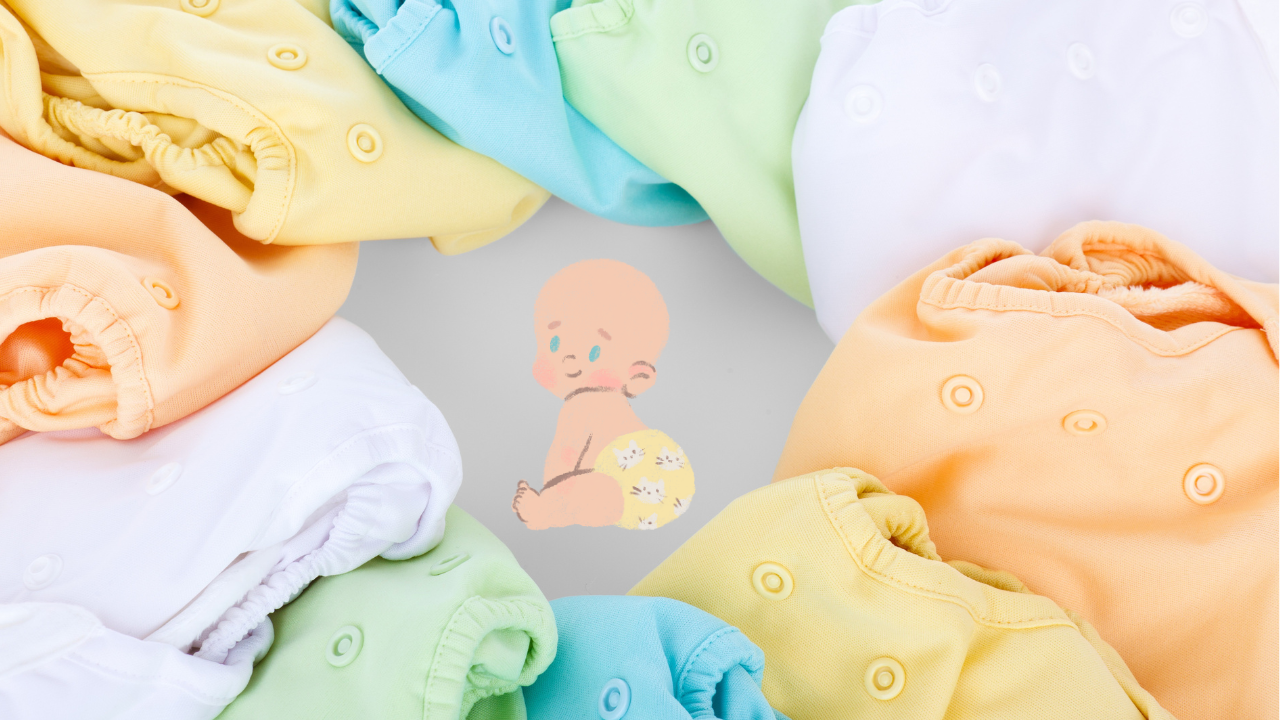How Psychedelics Optimize Mental Health Naturally
Hey, I am Ashley. The go to integration coach across all our beautiful nations and founder of Elemental Growth. Today I am here to place a strong focus on the integration of indigenous psychedelic medicines for brain health so you can explore the plants and fungus helping us carry out our purpose on earth. My professional expertise resides in nutrition, hormone health, energy work, and 17 years experience working directly with natural foods & medicines such as magic (psilocybin) mushrooms.
These ideas I am about to share with you are far out for the average person - this is an article written specifically for the people with an open mind, self-awareness and belief that they can heal themselves body, mind and spirit. In my book Be The Change: Your Guide to Elemental Growth I guide my readers through a year of transformation using the free food and medicine all around us. To keep things relevant today I am going to get a lot deeper and share my personal BIOHACKING SECRETS!
Bio-hacking is all about self-improvement and human optimization. As Tony Robbins explains it “Biohacking is essentially the practice of changing our chemistry and our physiology through science and self-experimentation to energize and enhance the body”. I don’t know if Tony has experimented with psychedelics but I know they do help make the process of biohacking more impactful and enjoyable.
Looking at history, humanity has used classic psychedelics such as psilocybin mushrooms as sacraments since ancient times. They were making waves throughout psychiatry and neuroscience in the 1950s to 1960s. During this time they also contributed to the emergence of the field of molecular neuroscience. Psychedelic drugs were popularized in the 1960s by researchers such as Timothy Leary, Ram Dass, Terrence McKenna and other enthusiasts. Between the 1960’s and the 1980’s a number of scientific studies were being conducted on psychedelic substances. However, due to radical activism and drug propaganda, psychedelics were made illegal in 1970. This prohibition resulted in an abrupt halt in research and went underground. Today Psychedelic research has once again become a rapidly accelerating field in science, psychology and medicine. Turns out criminalization and “this is your brain on drugs” propaganda wasn't enough to keep our species from exploring our own psyches and potential as humans.
Psychedelics again prove effective at treating mental health illness such as PTSD, depression, anxiety, and addiction. Their serotonergic neurotransmission opens one up to experience life fully. Neurogenesis molds one's personality which has an important impact on one's value systems, cognitive flexibility, and behaviours. These natural flora and fungi may just be our saving grace when it comes to self-regulation and mental health recovery. Psychedelic reports show us a boost in psychosocial wellbeing, cognitive enhancement, creative enhancement, reduced depression and anxiety, enhanced self-insight, mindfulness, improved mood and attitude toward life, improved habits and health behaviors, also improved social interactions and interpersonal connections.
Still, treatment for depression, the most common mental illness, is dominated by pharmaceutical drugs called selective serotonin reuptake inhibitors like Prozac and other SSRIs. These drugs boost levels of the neurotransmitter serotonin in synapses by blocking its reabsorption by neurons. Despite the fact that SSRIs come with crazy side effects, depression is NOT a serotonin imbalance, and out of the 13% of US citizens taking SSRIs only 1 in every 5 people get the help they require from them. According to the US addiction center Antidepressant Addiction is a primary, chronic, neurobiological disease with genetic, psychosocial, and environmental influence. They also have crazy withdrawal symptoms such as depression, suicidal thoughts, serotonin syndrome (strom), vomiting, diarrhea, and brain zaps.
Psychedelics on the other hand, work like Nootropics (noh-ə-TROP-iks). They are smart drugs and cognitive enhancers. They actually improve cognitive function, particularly executive functions, memory, creativity, or motivation, in healthy individuals. These naturally sourced substances seem to unlock the brain’s ability to remodel itself through Neuroplasticity, meaning they rewire the brain. Working with a coach or other health professional may further support new growth and connections. In Silicon Valley and perhaps elsewhere too, there is increasing experimentation with nootropic and psychedelic substances for cognitive enhancement, creativity and general well being. Some people swear by modafinil (Provigil) to keep them alert, while others are trying psilocybin mushrooms as a way to stay more engaged and creative during the day. Nootropics and psychedelics have profound effects on our cognition, sense of well being and creativity though little is known about their effects on the brain due to prohibition.
What we do know is, Psychedelics decrease blood flow to the “default mode network” (DMN), an area of the brain that is activated when the mind is wandering and has no commitment. In Napoleon Hill’s book “Outwitting The Devil'' he referred to this as the “Drifter”. When taken with intention psychedelics allow you the ability to think beyond your limited set of beliefs programmed within the DMN, and find NEW solutions. As psychedelics decrease DMN activation, users expand their ability to connect seemingly unconnected pieces of information and create revolutionary new solutions. These changes enhance lateral thinking and creativity, both of which are critical for problem-solving and analytical thinking.
The truth is Mental Health disorders are powerful superpowers and psychedelics give us the wisdom to “use the force for knowledge and defense”. Psychedelics have regained interest because users report beneficial effects on cognitive processes and well-being. While science mainly focuses on the central nervous system including the immune system and the neuroendocrine system, the microbiome is actually where about 95 percent of the serotonin in your body is produced. WIth mood, anxiety, and substance-use disorders being among the most prevalent psychiatric disorders in the population today I want to take some time to explain the Gut & Brain Connection. Although several pharmacological treatments are available, they are not effective for a significant proportion of patients and are associated with several adverse reactions. Therefore, new treatments must be explored.
By now, it’s no secret the brain and gut are in constant communication. So far, we know serotonin is central to gut-brain signaling. In fact, 90 percent of serotonin is synthesized in the lining of the gastrointestinal tract. Psychedelics, including psilocybin, LSD (a.k.a. ‘acid’), and DMT are serotonergic drugs that bind to the 5-HT2A receptor. Turns out the army of microorganisms within our gut have evolved with us since the beginning of time and as such formed a symbiotic relationship with the foods we consume. The microorganisms within us outnumber our cell count within the human body by 10-times, and microorganisms collectively have 100 times the amount of genes a human has, how cool is that. Within the gut, serotonin harmonizes gut muscle movement during digestion, secretion, and processes of digestion and absorption. Serotonin also plays a role in intestinal inflammation, symptoms of IBS, and communication to the central nervous system. When there is a mental block it shows up in your gut, just as if there is a digestion issue it may fog your brain, this said there is still a lack of research on the connection between psychedelics and gut-health.
In the brain, serotonin regulates mood, cognition, behavior, sleep, appetite, and temperature. The brain also has a direct effect on the stomach and intestines. In fact, a troubled gut can be the cause or the product of anxiety, stress, or depression. Proving even more that the brain and the gastrointestinal (GI) system are intimately connected. There is also a lesser known part of our body’s nervous system located in our gut. It’s called the enteric nervous system. The enteric nervous system’s network of nerves, neurons and neurotransmitters extends from the esophagus to the anus. The enteric nervous system relies on the “second brain” in our gut to be in communication with the brain in our head.
This is not just an idea but fact, my favorite example starts inside our gut. We eat food from the soil (a world of bacteria that is infinite on its own), then the harvest, which contains prebiotics feeds the bacteria in our gut (probiotics), from there we are then fed – a walking body of bacteria in a world, inside an infinite universe. Probiotics are the healthy bacteria that live in your gut. Science shows that a healthy gut is essential for overall health, including brain and mood health. Gut bacteria have been discovered to possess the ability to manipulate neurotransmitter activity and are capable of producing serotonin, dopamine, acetylcholine, GABA, and more.
While psychedelic experiences vary significantly depending on who you are, where in life, and which medicine you decide to work with, people interviewed for journalistic articles commonly confirm heightened clarity and confidence about their personal values and priorities, and a renewed or enhanced recognition of intrinsic meaning and value of life. People who take psychedelics with an intention of spiritual introspection often report that the drugs opened windows into deeper realms of existential experience. Psychedelics are relatively safe, with a low toxicity and risk profile; however, certain adverse experiences such as transient psychological distress and post-treatment headaches are common, and in some cases can be severe and persisting. Risks are mitigated through appropriate preparation, setting and integration support.
A psychedelic experience is a lot like giving birth – you have the preparation (9 months of pregnancy), birthing experience (average 5 hours) and the integration (from breastfeeding to grand-babies, 18+ years) yet for each person, their journey is completely unique. The average mushroom “trip” is 6 hours - 40 minutes to kick in and around 5 hours to experience your individual psychedelic therapy (awakening). Every dose, every substance, every experience is different because everyday you are becoming a new version of yourself. This said many people still report the same conclusions.
So far as science can tell, psychedelics aren’t considered addictive and they don’t appear to cause organ damage or neurotoxicity. They can however cause adverse experiences, such as increased heart rate, blood pressure and breathing rate, headaches, and transient psychological distress, dizziness, blurred vision, weakness and tremors, in the hours they are active so the state of your mind and environment are important. For some people, negative effects persist for days or weeks. In order to prepare for a safe psychedelic experience you must consider appropriate dosage, setting, integration and support. I must also add that taking multiple doses or combining with other substances is NOT recommended. Integration is most important because without proper support you may want to pack away your psychedelic experience in the basement of your subconscious where it can come back up unexpectedly.
SEVEN FACTORS THAT AFFECT A PSYCHEDELIC EXPERIENCE
✔ Preparation: Before your experience, make yourself aware of the benefits, risks and contraindications. Activities such as self-exploration, coaching, meditation, journaling, intention-setting and hylotropic breathwork can help you prepare.
✔ Type of Psychedelic: Take time to research different types of psychedelics and their effects.
✔ Dose: Understand the dose and response time of the chosen psychedelic. A psychedelic trip can last 4-8 hours, depending on the dose and your sensitivity.
✔ How to Consume: Plan how you will consume the psychoactive substance.
✔ Mindset: Your mindset, mental state, and intention affect your trip. Grounding your thoughts and mood can improve your experience of an altered state of consciousness.
✔ Setting: Choose the physical and social environment for your psychedelic experience.
✔ Integration: Integration and self-care is the key to processing psychedelic trips. It can help to talk through your experience with a guide, as well as free-writing, breathwork, solo walks in nature and mindfulness meditation.
Most psychedelics mimic the effects of serotonin (the mood regulator) and 5-HT2A receptors in the prefrontal cortex. This enables the transmission of signals between nerve cells and plays a role in learning and memory. Microdoses cause cortical functions to be more fluid, leading researchers to believe that psychedelics may help certain brain areas work in increasingly flexible and expansive ways. Social media has played a vital role in the growing visibility of microdosing providing strategies for optimal results, minimized risks, and shared emotional support.
Microdosing is the practice of using very small doses (usually between 10 and 20 micrograms (μg) of LSD or 100 milligrams (mg) of psilocybin) of serotonergic psychedelics with the intention to improve creativity, boost physical energy level, promote emotional balance, increase performance on problems-solving tasks and to treat anxiety, depression and addiction. A microdose does not cause perceptual sensory changes such as visual hallucinations and is not strong enough to debilitate the consumer. In research, microdoses were reported to significantly heighten alertness, creativity, and problem-solving—inducing a “flow state” that aids in lateral thinking.
Before undergoing any psychedelic experience I encourage you to get your physical health in optimal condition. Include more fermented foods in your diet to support your gut health. Probiotics are the beneficial microorganisms which populate our digestive tract, and they help to digest the food we eat, facilitate absorption of nutrients and regulate our mood. Folate and other B-Vitamins are also crucial because they help in the production of dopamine. You can get your folate from a daily intake of lentils and leafy greens. Lastly I want to mention magnesium, a key nutrient for nerve and muscle function and regulating the heartbeat. Magnesium deficiency could exacerbate depression and anxiety so ensure you enjoy dark chocolate and Epsom salt baths more often. These elemental nutrition tips, along with proper hydration, sleep, and exercise will set your body up to produce all the biochemicals necessary for a psychedelic BIOHACKING experience.
As I suggested, some of these ideas are “far out” even with science there to back it up. Still, as people come out of the psychedelic closet and work more freely with these naturally occurring psychedelics there becomes a remembering of how yesterdays prohibition becomes tomorrow's stocks, how the precaution of psychedelics includes the oppression of our own human ability to self regulate for human optimization, and how a temporary disruption of neural hierarchies allow us to surrender control, increasing information transfer throughout our multidimensional being. Freeing nature from the grips of control, frees our minds. When you liberate yourself, the world around you will follow - it has a ripple effect!
I received my training from the Institute for Integrative Nutrition where I learned from world class experts. You may also find value in teaching from the Mckenna Academy, Dr. Dan Engle, and the Sociedelic community where I contribute each month to the psychedelic revolution happening now. For a daily dose of positivity connect with me directly on Instagram @ElementalGrowth
Thank you for this opportunity, I am sending you all much love on your biohacking journey ☺












